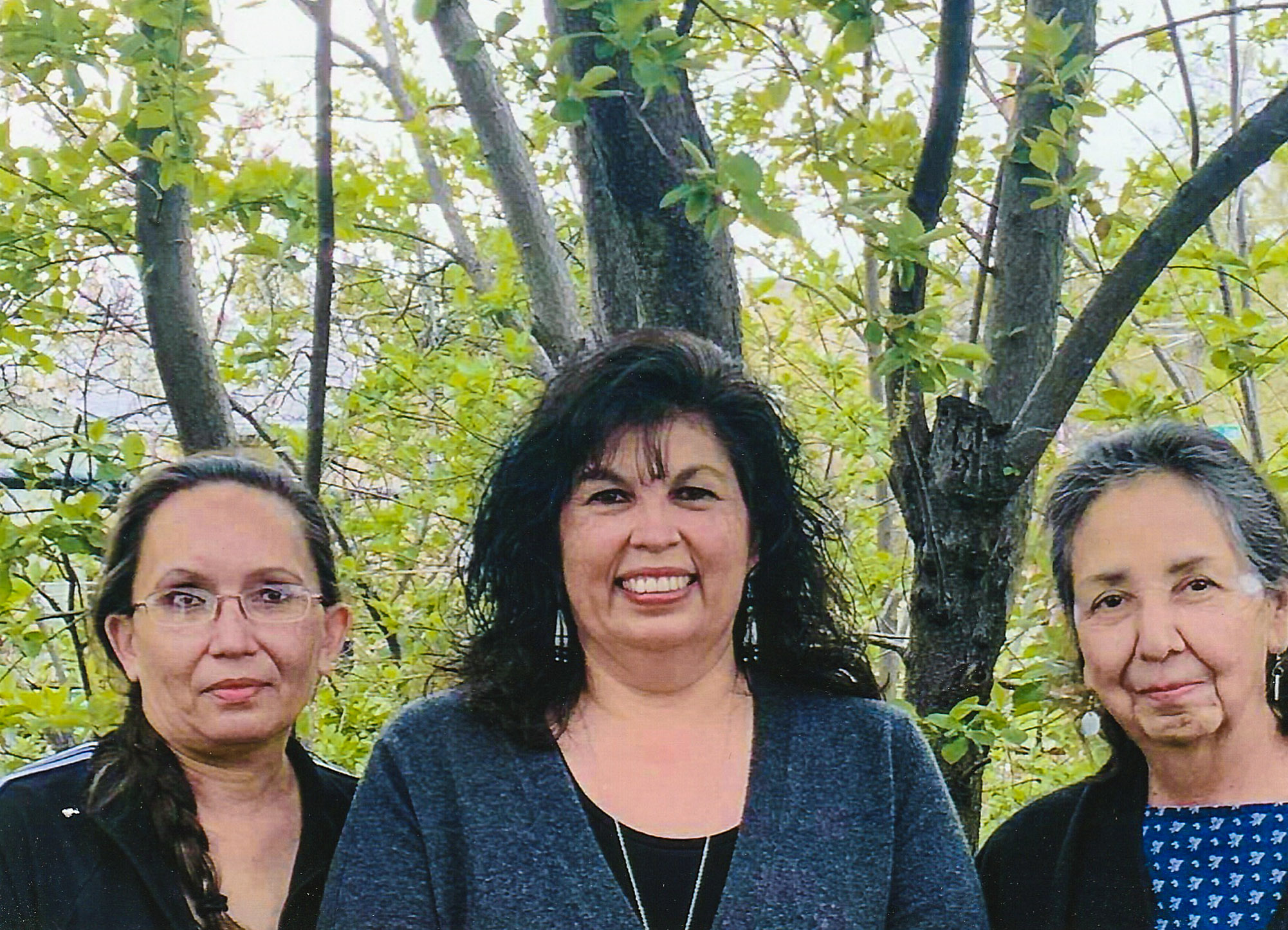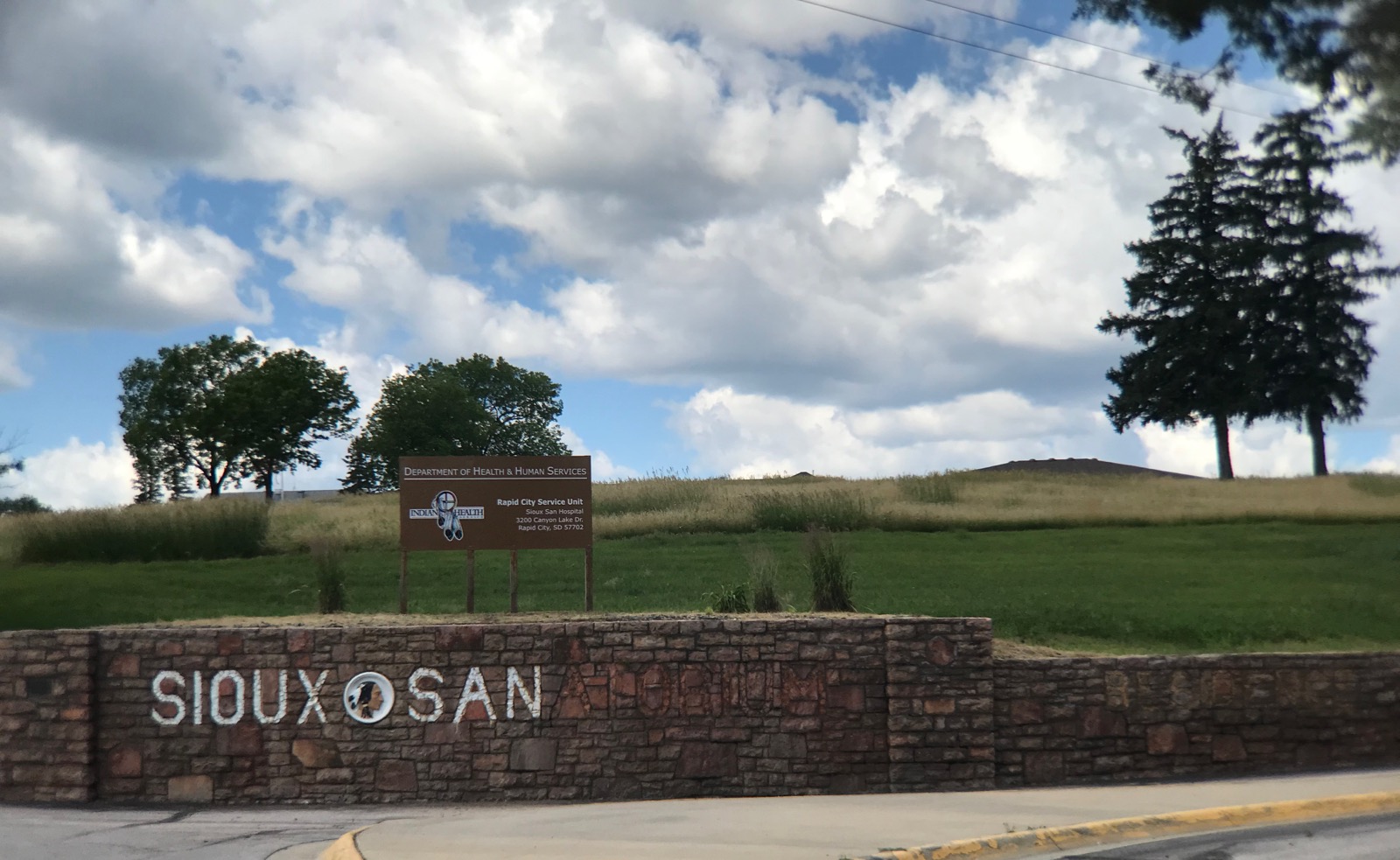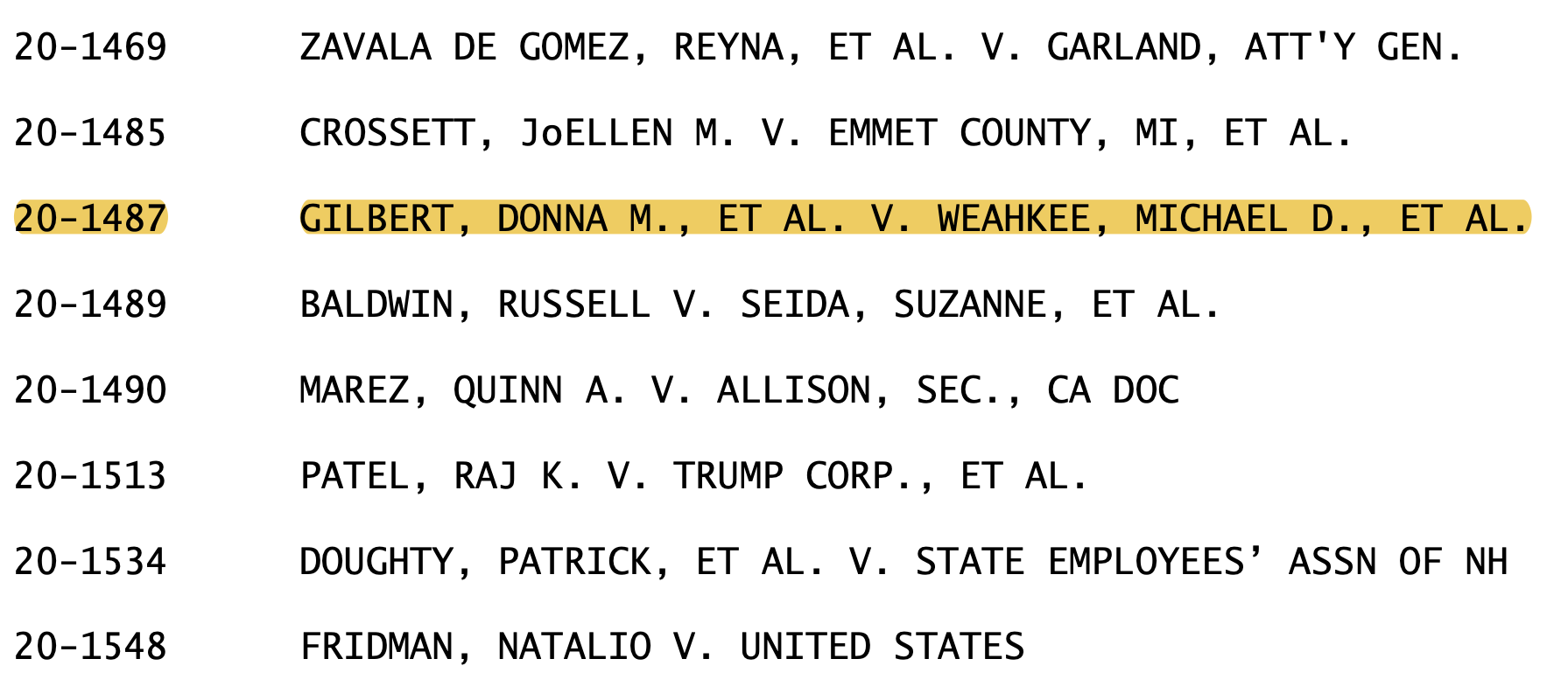Indianz.Com > News > Native Sun News Today: A ‘devastating blow to Indian self-determination’ with court case

Supreme Court declines to hear Sioux San case
Thursday, June 24, 2021
RAPID CITY, South Dakota — Exactly two months after receiving a writ of certiorari to be heard before the United States Supreme Court, the Court has declined to hear the appeal in Gilbert v Weahkee, upholding the decision of Judge Jeffrey Viken at the district court level.
A June 10, 2021, press release from the plaintiffs described their case as follows: “Three (3) Sioux women from Rapid City, Donna M. Gilbert, Julie Mohney, and Charmaine White Face, filed suit in the local South Dakota federal court only to have their suit dismissed. Proceeding on their own, pro se, the women took their case to the 8th Circuit Court of Appeals and had their case again dismissed.”
“Undaunted, as many of the patients at the hospital were being harmed in a number of ways, the three women proceeded to the U.S. Supreme Court,” the plaintiffs continued. “They were trying to stop fraud by a federal agency, save their hospital, and make sure the American Indian community members had good health care as provided in the 1868 Fort Laramie Treaty.”


NATIVE SUN NEWS TODAY
Support Native media!
Read the rest of the story on Native Sun News Today: Supreme Court declines to hear Sioux San case
Contact James Giago Davies at skindiesel@msn.com
Note: Copyright permission Native Sun News Today
Search
Filed Under
Tags
More Headlines
Native America Calling: Can the right approach close the Native immunization gap?
Cronkite News: Long COVID cases remain high in Arizona
Native America Calling: Eyes in the sky for development, public safety, and recreation
Native America Calling: Three new films offer diverse views of Native life
NAFOA: 5 Things You Need to Know this Week
Chuck Hoskin: Cherokee Nation works toward cure for arthritis
Native America Calling: Protecting young people from the down sides of social media
Cronkite News: Fake ‘shaman’ among candidates failing to make Congressional ballot
Native America Calling: New Native voices in poetry
Cronkite News: Tribes air concerns about border at hearing in nation’s capital
Native America Calling: Indiginerds descend on Oklahoma City
Native America Calling: Political leaders target tribes with unfounded claims
Cronkite News: First Native woman in space shares unique journey
Native America Calling: Tackling a troubling trend for Native women in prison
Chuck Hoskin: Cherokee Nation safeguards our Native language
More Headlines
Cronkite News: Long COVID cases remain high in Arizona
Native America Calling: Eyes in the sky for development, public safety, and recreation
Native America Calling: Three new films offer diverse views of Native life
NAFOA: 5 Things You Need to Know this Week
Chuck Hoskin: Cherokee Nation works toward cure for arthritis
Native America Calling: Protecting young people from the down sides of social media
Cronkite News: Fake ‘shaman’ among candidates failing to make Congressional ballot
Native America Calling: New Native voices in poetry
Cronkite News: Tribes air concerns about border at hearing in nation’s capital
Native America Calling: Indiginerds descend on Oklahoma City
Native America Calling: Political leaders target tribes with unfounded claims
Cronkite News: First Native woman in space shares unique journey
Native America Calling: Tackling a troubling trend for Native women in prison
Chuck Hoskin: Cherokee Nation safeguards our Native language
More Headlines
